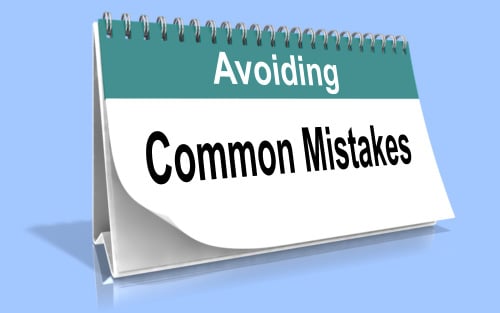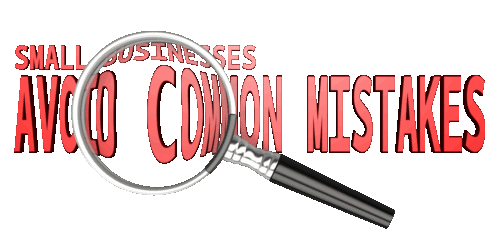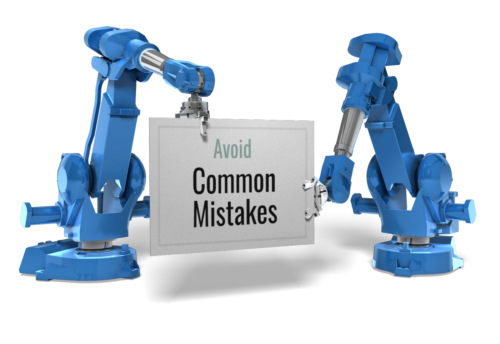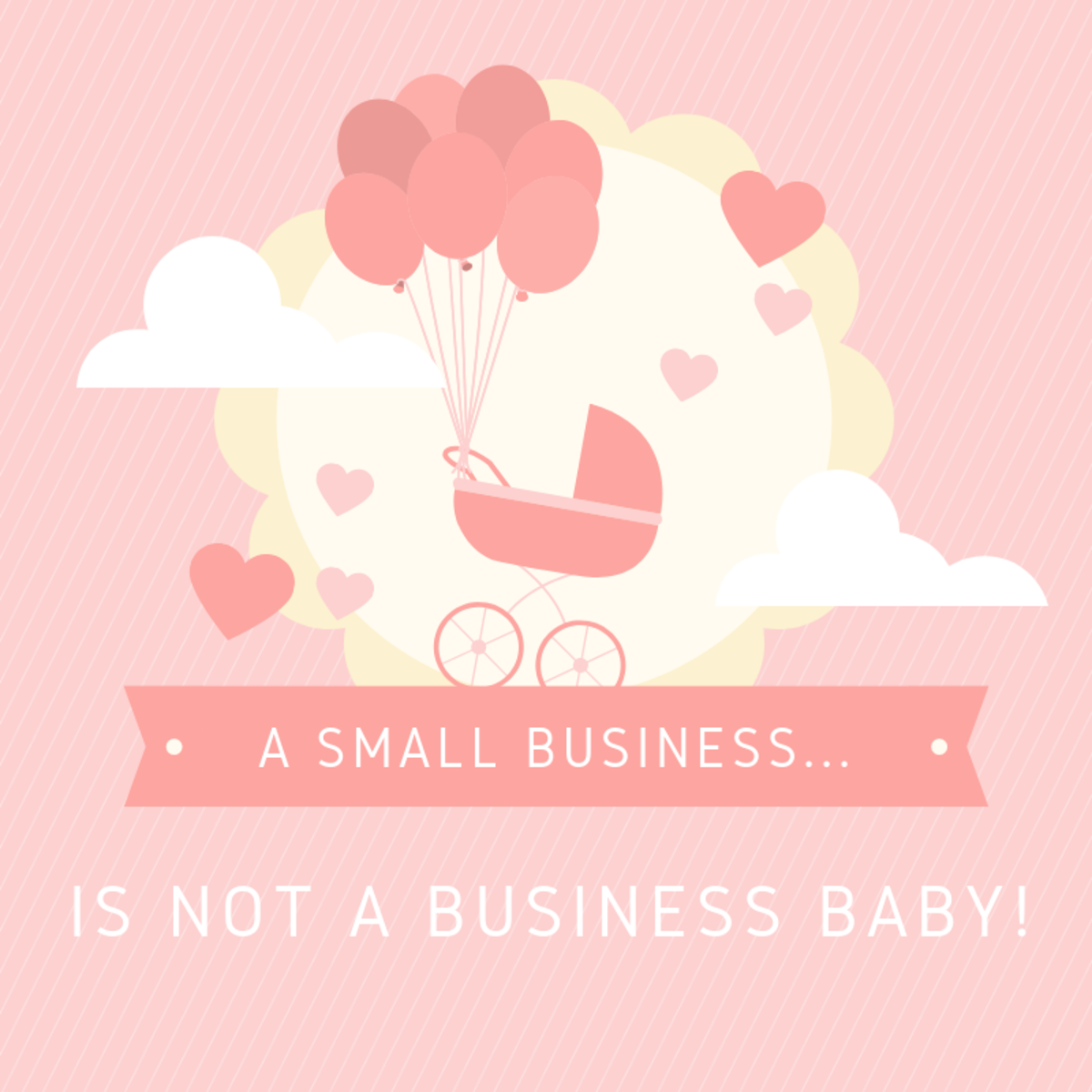Four Common Small Business Finance Mistakes

The Top 4 Business Financing Mistakes Made by Small Businesses
Everyone makes mistakes, and small business owners are not immune from this natural tendency. However, some business finance mistakes are potentially worse than others and should be avoided whenever possible. This is particularly true for business financing problems that tend to keep recurring unless they are dealt with adequately. While the list of common business financial mistakes has more than just a handful of examples, here are four that deserve some timely attention by small businesses:
- Taking on too much debt
- Using online applications to apply for commercial loans
- Not firing a bank when it is appropriate
- Lack of contingency financial plans (not having a Plan B)
Always Have a Plan B
The need for small businesses to have a Plan B realistically applies to each and every area of their business. Whether we are talking about commercial financing, business training, career planning, financial agreements or business proposal writing, having a Plan B can provide extensive benefits.
Because of the critical importance of having a Plan B mentality, it can be helpful to think of the failure to have a contingency business plan as the highest priority mistake to avoid.
When focusing specifically on small business finance mistakes, a Plan B would include having a contingency plan to address what to do if something goes wrong with any financial agreement. An example would be to think ahead and determine what to do if required small business loans cannot be obtained from your current bank.
"Always Have a Plan B" is definitely a lesson to be learned from this perspective.
Gary Kasparov Talks about Making Mistakes
Too Much Debt Can Involve More Than One Mistake
This small business financing mistake goes hand-in-hand with the failure to reduce business debt and operating expenses. Just because a commercial bank or other lender is willing to provide a commercial loan does not mean that a small business owner should accept it. Because commercial mortgages and working capital loans have become harder to get from banks, reducing business debt and operating expenses have become practical financial strategies.
What Could Go Wrong?
Small businesses are now facing a new harsh reality in which there are likely to be multiple examples of material things going wrong. While it is always healthy to predict and assume an optimistic outcome, the most prudent and practical approach is likely to be an assessment of several alternative business solutions that can be implemented when necessary if projected outcomes do not occur. In other words, always ask — What could go wrong?
Business borrowers should “Always have a Plan B” for their small business loan programs. For commercial financing there is often inadequate attention paid to what can go wrong with business finance arrangements. A key example — numerous banks have already pulled the plug on business financing (in most cases with little advance notice to commercial borrowers). Based on evolving uncertainties in commercial finance markets, all business owners would be wise to immediately formulate a Plan B that identifies what to do if something goes wrong — for example, if current financing is revoked or reduced for working capital financing and commercial mortgage loans.
Making mistakes is unavoidable, but once they are made the goal should always be to learn from mistakes and move forward. There is no shortage of quotes from famous people such as Thomas Edison, Michael Jordan, Henry Ford and Soichiro Honda about how failure was a very productive part of their considerable overall success. Here is a particularly straightforward observation about mistakes from Lee Trevino:
We all leak oil, but the good ones control the flow.
— Lee TrevinoOnline Financing Applications Are Usually a Big Mistake
This is the easiest business finance mistake to avoid: Just Don't Do It!
In an information age in which we have become accustomed to doing more and more online, this mistake might seem hard to understand. It is simply not prudent for a small business owner to provide confidential business and tax information electronically to an uncertain online source. This kind of electronic application process should be avoided at a minimum until after a small business owner has an in-depth conversation with a representative of the prospective lender to determine more about the prospects for receiving desired financing.

The Mistake of Not Knowing When to Fire Your Bank
This is possibly the most difficult mistake to fix, but it is likely to lead to bigger problems if left unattended. The first sign that a small business might need to fire their banker is when a bank says "no" to a relatively routine request for commercial funding. This should not lead immediately to firing your bank but instead to communicating and negotiating to determine what is realistically possible. Once that has happened without an agreeable outcome, the beginning of the mistake occurs when a business owner then fails to consider when and if the bank should be fired.
The potential mistake can be more serious when a Zombie Bank is involved. Is your bank a Zombie Bank?
Avoid Business Writing Mistakes
Lack of a Contingency Business Plan Can Lead to Other Mistakes
As noted in the accompanying Peter Drucker quote, asking the wrong questions is important in both business and life. Questions and answers play a big role in this process. Contingency business planning involves asking "What could go wrong?" before something bad actually happens and reviewing in advance what actions to take when and if an unexpected event occurs. In the case of small business loans, this issue and question should always be considered:
What if my bank says no?

Two Points to Remember
Never overlook the need to examine risk — What could go wrong?
Risk assessment is now increasingly necessary for commercial borrowers. This involves both asking the right questions and finding candid answers from commercial loan experts. For small businesses, the most practical and effective answers will often come from a small business expert who is willing and able to provide help.
There have been a series of financial and banking surprises during the past several years. Is it really reasonable for a small business owner to think that they will avoid the chaos and changing business environment that is surrounding them and impacting the rest of the business world?
Two points to remember:
(1) Always have a Plan B.
(2) To celebrate failure and learn from mistakes, remember the importance of asking the right questions.
Mistake Number Five: Ignoring Zombie Problems
If you're not making mistakes, then you're not doing anything. I'm positive that a doer makes mistakes.
— John Wooden© 2012 Stephen Bush








